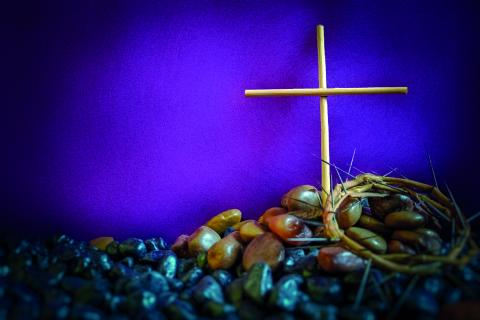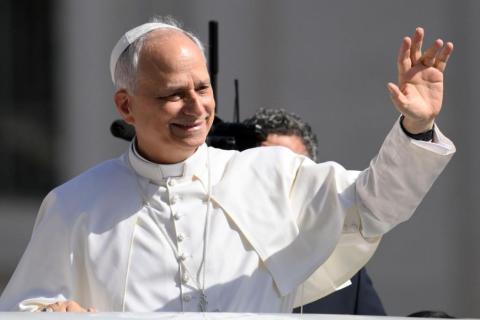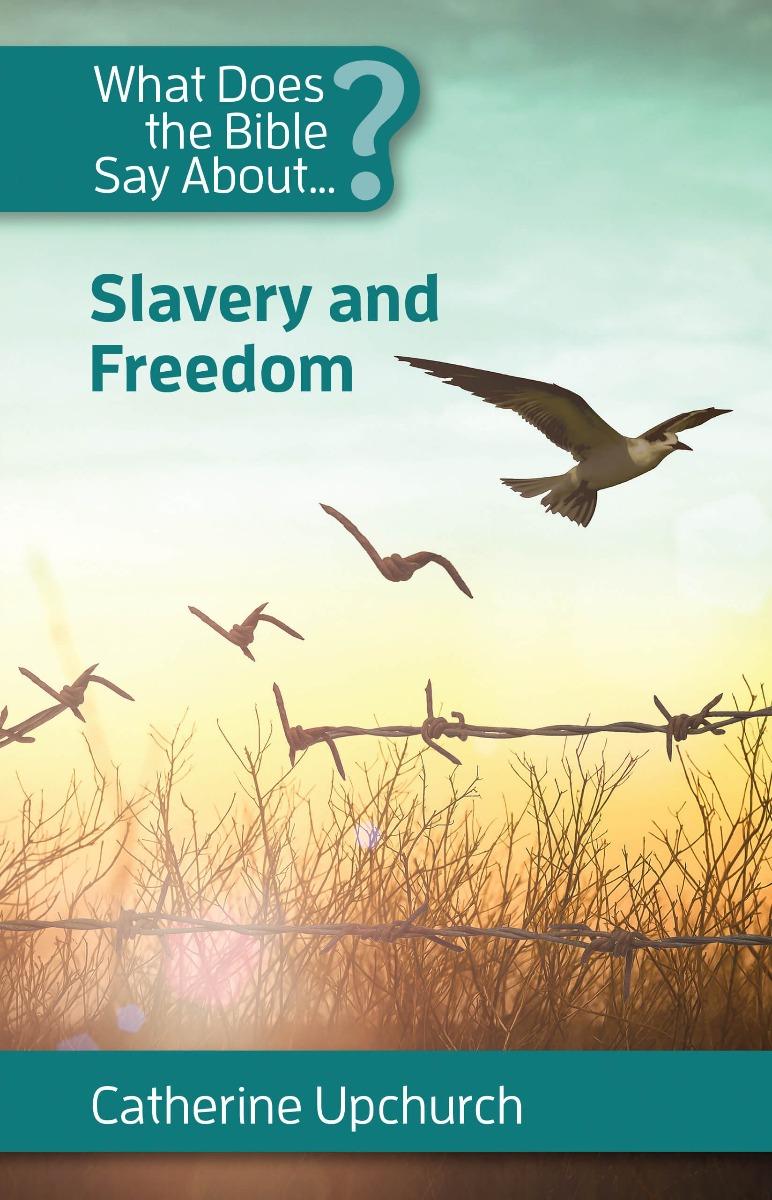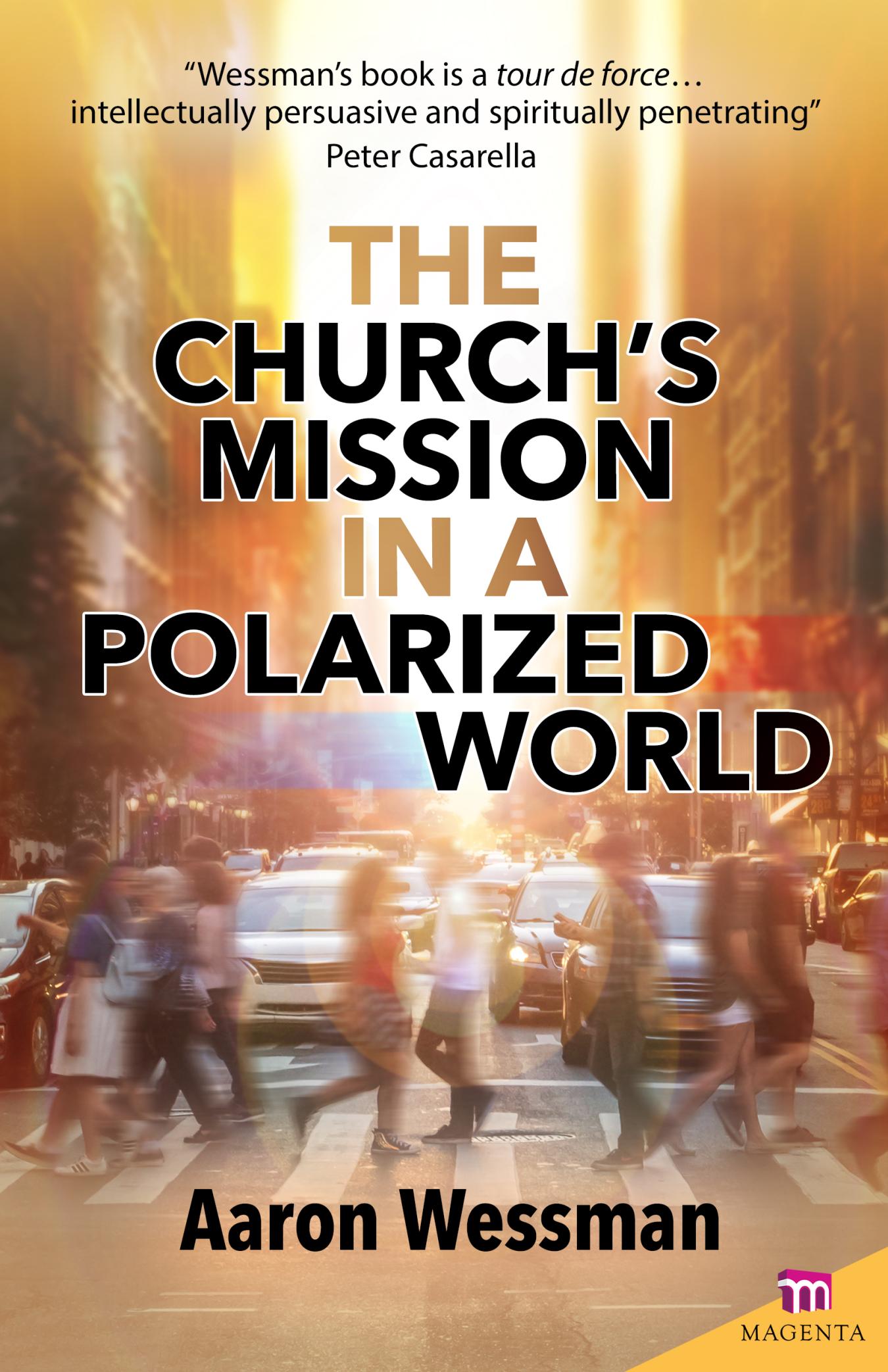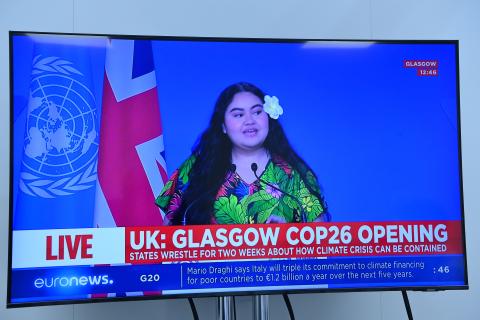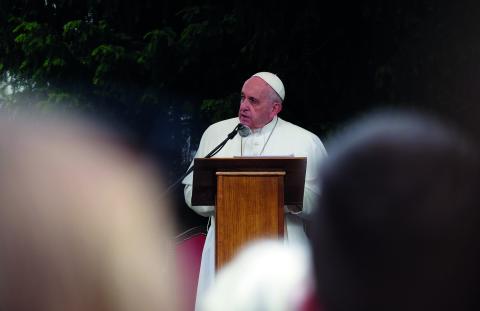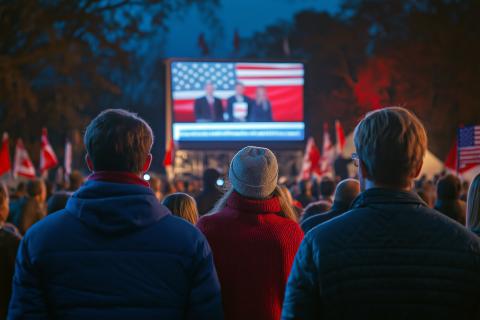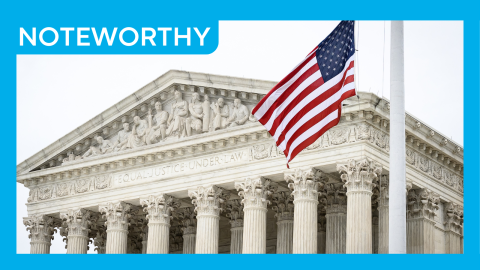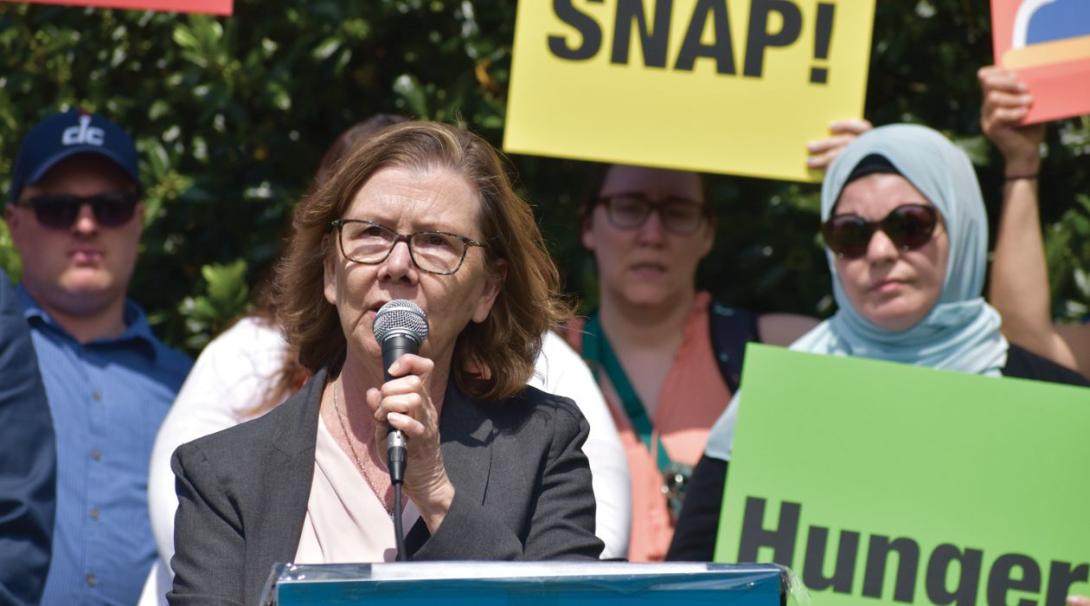
Photo by courtesy of Mary J. Novak
Mary J. Novak is executive director of NETWORK Lobby for Catholic Social Justice, in Washington, DC. In April 2021, she became the sixth woman, and first layperson, to guide the organization founded by Catholic Sisters a half-century ago. Novak’s experience as an organizer, activist, trauma-informed lawyer, educator, chaplain, and restorative justice practitioner informs her ability to integrate all aspects of NETWORK to advance the organization’s mission.
Sr. Julia: What is it like to be working in Washington as a lobbyist for Catholic social justice?
Mary Novak: You mean at this very moment? I am going to back my way into your question, with my answer, because I think it is really important for me to put some context out there. Ever since I started working at NETWORK, I’ve been asked so many times if it’s appropriate for people of faith to be involved in public life and politics. And then usually the rest of the sentence goes something like, especially in light of separation of church and state.
Sr. Julia: Oh, come on. Can I tell you that I hate that question?
Mary Novak: Yes, right. But there are so many people who do not understand even the role of faith-based advocacy. So, I have to go on and talk about how the whole purpose of the separation of church and state is so that the church and state remain institutionally separated and neither the church or the state tries to perform each other’s roles. But that doesn’t mean that they don’t seek to influence each other.
And I have to go on and explain that the First Amendment to the Constitution lays this out, and that there are all these really complicated Supreme Court cases, which I’m not going to bore you with today, my legal nerdiness. But I have to lay that out and just say, that’s how the Constitution and the U.S. government is set up.
And then I have to explain that as Catholics, we are fundamentally called by our social teaching and our tradition to participate in society for the common good, for the wellbeing of all, and especially for those on the margins who are pressed there by our sinful structures, and that this is embedded in our tradition.
And then they’re like, okay.
I run up against that all the time in this role. Then I have to explain that in 1971, the first world Synod of Bishops came out with a brilliant document, “Justice in the World,” that actually said you have to get involved in politics if you are a Catholic. In other words, that’s what you are called to do.
Quite literally, then, Women Religious, the next year in the United States, founded NETWORK as a direct response to the call of the church.
Sr. Julia: We’re kind of like that.
Mary Novak: I know, which of course is why I am so at home in this space. You respond to the world when it calls you. So that’s what we did, what you all did.
Sr. Julia: Well, I wasn’t here yet. My elders.
Mary Novak: I know, but you know what I mean. Now, fast forward: Pope Francis in 2020 comes out with Fratelli tutti, which I love. It is a beautiful document. Chapter 5 is called “The Better Kind of Politics,” and in it he says politics for the common good is a sacred vocation and one of the highest forms of charity.
Isn’t that beautiful?
Sr. Julia: What a blessing to you.
As Catholics, we are fundamentally called by our social teaching and our tradition to participate in society for the common good
Mary Novak: I know. I reread it when I first started at NETWORK, and I was like, oh my God, has he studied the Sisters who founded NETWORK, who have been living the sacred vocation for fifty-one years? I don’t know if he knows about NETWORK, but I do know he beautifully described what NETWORK has been doing.
For me, while I resisted it a bit, when I first got the call to consider this position, I have come to trust the discernment and know that I am called to be in this space at this moment, especially in light of all the different threads of my life that come together.
So that is how it is for me personally, to really feel like I am continuing the vision of Women Religious in the United States. And that I have the formation to be able to actually do that.
Sr. Julia: You are actually glowing as you talk about it.
Mary Novak: I’m so grateful for the question, and I really do feel honored.
But now I want to answer your question in a slightly different way, as well. And that is that our democracy right now is very fragile. Our U.S. democracy has been on a downward trajectory for seventeen years based on experts in worldwide democracy studies. There are lots of reasons for it. A couple of things that I will just mention, and then I’ll bring it all together.
The first thing is that it was not until 1965 that the U.S. really tried to be a multi-racial, multi-faith, multi-ethnic, inclusive democracy. Because, you know, we kept out Black folks from the beginning. So, while we say in the U.S. that we’re the oldest democracy in the world, we actually only tried to be an inclusive democracy starting in 1965. So, international democracy experts say that we are on par in our experiment of democracy with second-wave post-colonial countries.
Two more factors are also at play here. We are in the midst of a massive demographic shift in the United States. White people will no longer be the majority by 2040, and to get there, every place in the country is shifting demographically.
White folks are losing power, or they are seeing that they will lose it. No other major democracy in the world has navigated such a massive demographic shift. And it’s got so many pieces to it that we could spend a whole other session unpacking this.
Then, in 2013, the Supreme Court removed section 5 of the Voting Rights Act, which was a major protection so that states would not continue some of their racially-biased practices of keeping people away from the voting booths. So in places like Alabama, Georgia, Louisiana, Mississippi, South Carolina, Texas, and Virginia, they had some pretty terrible practices of keeping Black and Brown people away from the voting booths. These were put in place in 1965, and in 2013 the Supreme Court said no.
Within twenty-four hours of that Supreme Court decision, states started moving. Texas announced a strict voting ID law. They started voter purges for failure to vote in the last election. They started voter roll cleanups just if you moved across town. This happened in all of the states I named and more. And so what we are seeing is as these forces are working together, we are really in a state of crisis, and there’s a rise in authoritarian rulers across the world.
We know the damage the former president did in his four years. And he is, at present, the frontrunner for next year’s presidential election, which could be one of the most consequential elections in my lifetime, and definitely in yours.
So, what is it like to be in the middle of Washington at this moment? If you look at what I just went through, it is tension-filling to say the least. It is stressful. A lot of my work is keeping people grounded because they are panicked.
All of that said, being part of a community that was not only founded by Women Religious in their depth of wisdom, but who still are integrally part of this organization. The NETWORK community feels like exactly the right place for me to be, because I can’t do this alone.
I think it’s a discernment of spirits that we are in the midst of; you can’t just use pros and cons, weighing and balancing to make choices right now, it is really multi-level discernment of head, heart, and spirit, and this is what we’re in the midst of doing at NETWORK. And I have to say, I would not want to be anywhere else.
This is a partial transcript of an interview between Sr. Julia Walsh and Mary J. Novak called “The Messy, Necessary Mix of Faith and Politics,” on the Messy Jesus Business podcast. Originally published November 23, 2023.





